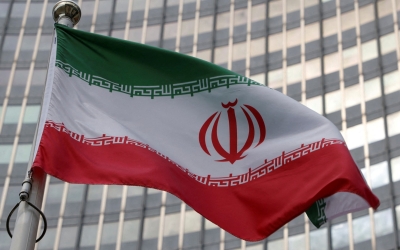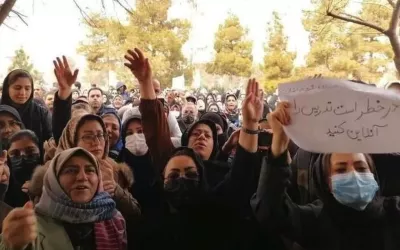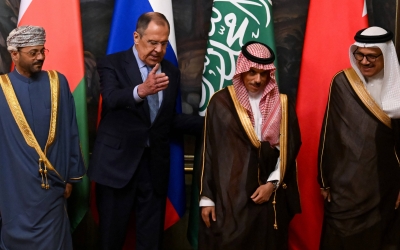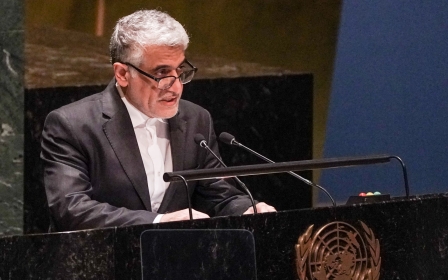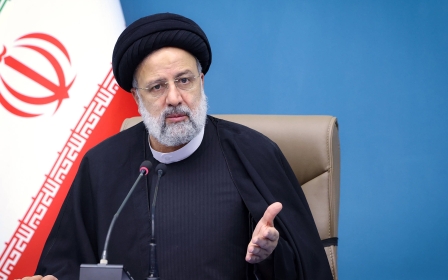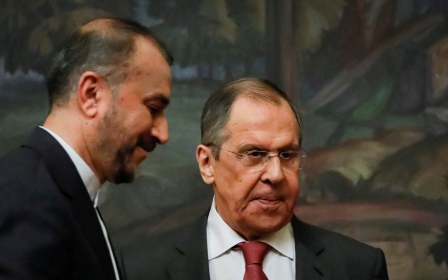Iranian press review: Oman held secret meetings in Tehran on US prisoner exchange
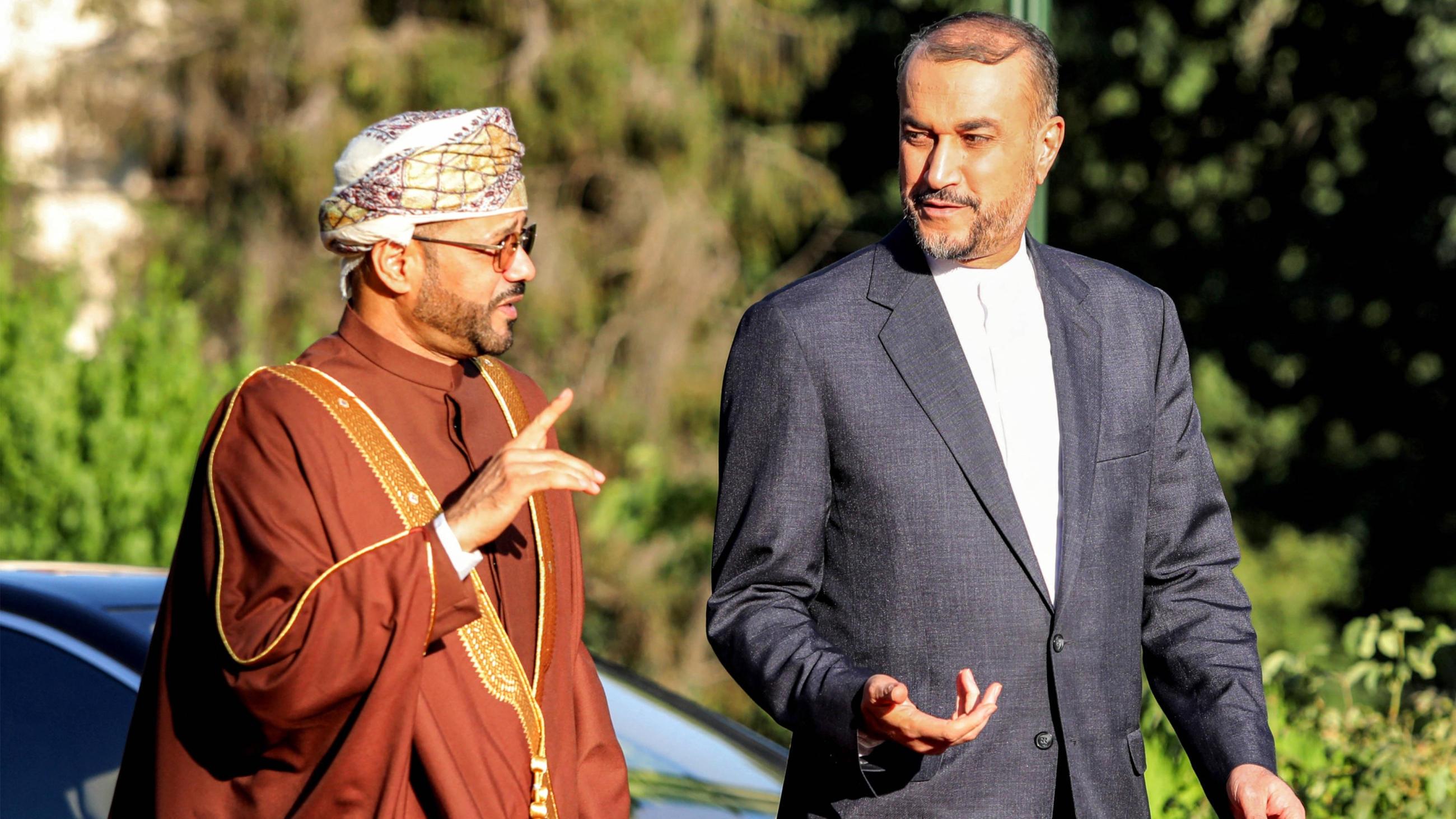
Oman role in Iran-US prisoner release deal
The unexpected visit of Omani Foreign Minister Sayyid Badr Albusaidi to Tehran on Monday has sparked speculation about the release of four Iranian-American prisoners and the intervention of influential organisations in the prisoner exchange, local media reported.
The US has publicly said it is working for the release of Siamak Namazi, Emad Sharghi and Morad Tahbaz, three Iranian-Americans imprisoned on espionage charges that Washington says are baseless, as part of an interim nuclear deal.
According to the Shargh daily, the purpose of Albusaidi's visit was to hold secret meetings with Iranian officials regarding a new demand by the US for a fourth prisoner to be released too, in exchange for Washington unfreezing Iran's assets in South Korea and Iraq.
Sources close to the talks told Middle East Eye last month that President Ebrahim Raisi is prepared to release the fourth prisoner as part of the deal.
New MEE newsletter: Jerusalem Dispatch
Sign up to get the latest insights and analysis on Israel-Palestine, alongside Turkey Unpacked and other MEE newsletters
However, there are dissenting voices within certain influential institutions, primarily the Republican Guard, which is insisting that the fourth prisoner’s fate should be discussed as a separate matter.
The sources did not disclose the prisoner’s name to MEE.
Adding to the speculation, the Arman daily suggested on Tuesday that Albusaidi's visit aimed to "reduce the differences between Iran and the US and find a solution for the stalemate in the ongoing negotiations" between the two countries.
While news about the release of Iranian-American prisoners has circulated in the past, sources from both countries have now confirmed that talks between Tehran and Washington are reaching a critical stage.
Early in June, Tehran and Washington appeared to be making good progress in negotiations over a temporary agreement that would see some limited sanctions relief in return for Iran curbing its nuclear enrichment, after the two sides had earlier reached an impasse in talks to revive the JCPOA 2015 nuclear agreement.
As first revealed by MEE, the two countries agreed that Iran would not enrich uranium to 60 percent and would cooperate with the International Atomic Energy Agency (IAEA) in the monitoring and verification of its nuclear programme.
In exchange, Tehran would be allowed to export up to a million barrels of oil per day and gain access to its income and other frozen funds abroad. Those funds would have to be used exclusively to purchase a range of essential items, including food and medication.
IRGC: Media behind girls' schools gas attacks
A top commander at Iran's Islamic Revolutionary Guard Corps (IRGC) has stirred controversy by claiming that the series of toxic gas attacks on girls' schools across the country in March were a form of cyber-attack caused by the media.
The head of Iran's Passive Defence Organisation, Brigadier General Gholamreza Jalali, rejected the findings of medical tests and reports conducted by officials, which had confirmed that hundreds of high schools had been targeted by gas attacks.
According to local media reports, he argued that the attacks resulted from a new technology that affects individuals who heavily rely on the media.
"While our girls experienced the physical sensations of being poisoned, medical examinations revealed no presence of poison or other biological factors," Jalali said, without clarifying which tests he was referring to.
"Surprisingly, the poisonings ceased once we gained control over the circulation of news in the media. The media, rather than any microbe or external source, appears to be responsible for these incidents," he added.
Jalali's remarks prompted mockery in the country, particularly among journalists.
Saeed Arkanzadeh, an Iranian journalist, expressed his amusement on Twitter, saying: "It is truly fascinating that despite their disdain and fear of the media, they remain so captivated by it. For them, the media is a quasi-sacred and enigmatic phenomenon; a mystical force from above capable of achieving anything. It is so potent that it can compel students nationwide to imagine they have been poisoned."
The gas attacks continued for two months in Iran, leading many to accuse extremist Islamists of orchestrating them due to their opposition to women's education.
Tehran overpays to rent Russian passenger jets
Iran is renting passenger planes from Russia as it looks to solve its aviation problems and the rising price of domestic flights, local media reported on Saturday.
Iran has for years faced difficulties in maintaining and upgrading its ageing fleet due to international sanctions, forcing it to find alternative means to address air transport challenges.
The move came after increasing economic and military collaboration between Iran and Russia, as both countries deal with harsh sanctions.
Iran's aviation was one of the first sectors to be affected by sanctions imposed following the hostage crisis in 1979.
According to official data, out of Iran's 330 passenger planes, only 75 to 98 are currently functional, and among those, only a few can operate at full capacity.
Iran chose to rent planes from Russia despite the fact Moscow's prices are higher than those on the international market.
Reports have revealed that Iran has been engaged in negotiations to rent Russian-made 100-seat jets for $30 per seat per hour, while the average price for such planes on the international market is about $14.
* Iranian press review is a digest of news reports not independently verified as accurate by Middle East Eye
Middle East Eye delivers independent and unrivalled coverage and analysis of the Middle East, North Africa and beyond. To learn more about republishing this content and the associated fees, please fill out this form. More about MEE can be found here.


